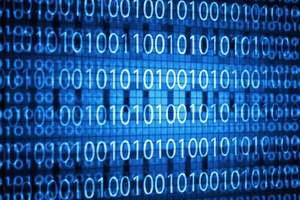-
19 juin 2015
The case for a European data policy

A consistent set of European standards could prove to be a lever for framing a digital industrial policy. In a legal framework where individuals come under high protection, the winners will be the enterprises who inspire enough confidence to obtain the users’ consent to access and use their personal data. Trust, says Rachel Botsman, is the currency of the 21st Century. Maybe. But data is the commodity of the future, and those who can combine trust and valuable data can lead the race. It has just started. lire la suite
-
16 novembre 2011
The New Everyday

Much of what I have previously written in this website suggests a powerful, albeit mostly implicit, motif. The profusion of technological information that is characteristic of our age is rapidly moving beyond the borders of social and economic institutions in which it was originally spawned in the form of filing, indexing and data processing. It increasingly infiltrates and ultimately colonizes everyday living. The relevant developments are certainly associated with the massive involvement of the internet in social life but they have further been reinforced by growing bandwidth, media convergence and social networking. They have, of late, been given a new push by the the rapid diffusion of a battery of potent portable and connectible digital devices such as smartphones, digital cameras and tablet computers that are operating across the traditional semiotic borders of text, sound and image and the separate technological conventions to which reading, listening and viewing have traditionally belonged. lire la suite
-
8 juillet 2009
Attempting the Impossible: constructing Life out of Digital Records

Human living and knowing are bound to vacillate between the sensible and the intelligible, what can be experienced through the senses and what can be thought (including counting and calculation) without immediate reference to palpable reality. Perception is a vital and inseparable component of living and, though shaped by culture, it is firmly anchored into the human sensorium. At the same time, living and knowing always transcend the givens of perception and entail cognitive operations that lack ostensive reference, being conceptual or abstract. lire la suite
-
23 avril 2008
Databasing Life Patterns
Over the last two decades, many of us have felt the gradual and expanding involvement of technological information and the internet in our lives. However, more often than not, we fail to appreciate the subtle and pervasive implications these developments may have for the ways we think and behave. The accumulation of information, from the growing expansion of the trivial to the serious aspects of life that are recorded in databases (e.g. financial, medical or legal records, online habits) and the increasing sophistication of computer technology converge to confer to data and information a new and interesting role in the lives of people and the functioning of institutions. Information is not any longer confined within the world of computer-based experts. lire la suite
-
11 septembre 2006
Why multiculturalism should not be abandonned
In an article published in the Observer newspaper recently, a reporter writes of his visit to a local mosque. It was not just any mosque, but one frequented by some of the British Muslims held by the police in the plot to bring down several transatlantic planes. The reporter talks of meeting two TV teams at the mosque. One, from the US, came to try to find out why the UK is a hotbed of Muslim violence; the other team, which was French, was there to report upon the collapse of the British model of integration. lire la suite
telos
Recevez nos articles dès leur publication
fermerVous appréciez nos articles ?
Vous aimez en ce moment
-
- Les origines sociales et le QI des inventeurs 3 jan. 2018
- Les classes sociales: permanence et renouveau 2 jan. 2018
- Emmanuel Macron: Bonaparte au pont d’Arcole et en même temps Saint-Louis sous son chêne? 4 jan. 2018
- De quoi l’autoritarisme des mouvements populistes est-il le nom? 5 jan. 2018
- Brexit: être Européens pour deux 21 déc. 2017
- Le labyrinthe catalan 22 déc. 2017
